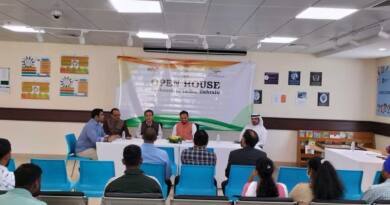Latest now : Is India Becoming a Real Soft Power in the World?
India is captivating the world with its many cultures and age-old knowledge as it makes a bold and impressive move to become a soft power. India’s rich history and the ideals it has upheld for millennia are fundamental to this voyage.
Let’s examine the intriguing development of India’s soft power, the cultural components that make it up, and the tactical application of this force in contemporary times.
What Soft Power Means to a Country:
In the field of international affairs, the term “soft power” refers to a country’s capacity to sway others without using force, mostly through its diplomacy, culture, and principles.
India Turning into the World’s Soft Power :
India is quickly becoming a major soft power in the world by utilizing its diverse customs, rich cultural legacy, and strong economy. India is becoming more and more influential in the rapidly changing digital landscape, especially in the technology industry.
This nation is leading the way in innovation and digital transformation, with a growing population and a robust IT sector. India is placed 36th in the Global Soft Power Index 2021, demonstrating its expanding influence.
Diversity and Cultural Heritage:
A Special Soft Power Asset India possesses a rich cultural diversity that appeals to people all over the world, ranging from traditional music and art forms to spiritual rituals. 38 UNESCO World Heritage Sites may be found in India, highlighting the country’s rich cultural diversity and history.
Ancient Knowledge and Tradition of Philosophy:
India’s age-old knowledge, contained in texts such as the Upanishads and Vedanta, has fascinated academics worldwide. The Upanishads’ profound notion that “Vasudhaiva Kutumbakam” (the world is one family) demonstrates India’s inclusive worldview, which is a key component of its soft power.
Epics and Literary Contributions:
Like the best of Greek literature, the epic stories of the Mahabharata and Ramayana have enthralled audiences around the world for These literary masterpieces highlight India’s skill at creating stories and its ageless moral and human values themes.
Pluralism and Cultural Assimilation:
India has a long history of peacefully absorbing many faiths and cultures while maintaining its own identity, making it a shining example of these ideals. Leaders like Ashoka, Buddha, and Gandhi further strengthen India’s soft power. Global Impact and Economic Transition India has soft power that goes beyond its diversity of culture. Its appeal as a soft power is further enhanced by its economic growth, technical achievements, and strategic worldwide involvement.
Resurgent Post-Colonial Economy:
Even though its economy was exploited during British colonialism, India emerged as a strong country after gaining its freedom. One lasting effect of the nonviolent resistance and tenacity displayed during the liberation movement was its global recognition and economic potential.
India’s soft power is supported by its significance in the global economy and its predicted status as the most populated nation by 2024. The purpose of programs like “Incredible India” and “Brand India” is to highlight the economic and cultural potential of India.
Projection of Soft Power and Diplomacy :
India prioritizes peace, communication, and collaboration in its foreign policy, which is defined by its “unity in diversity.” India’s soft power has been effectively projected on the international scene thanks to this strategy. The International Day of Yoga was established on June 21st as a result of the widespread acceptance of yoga as a soft power instrument.




